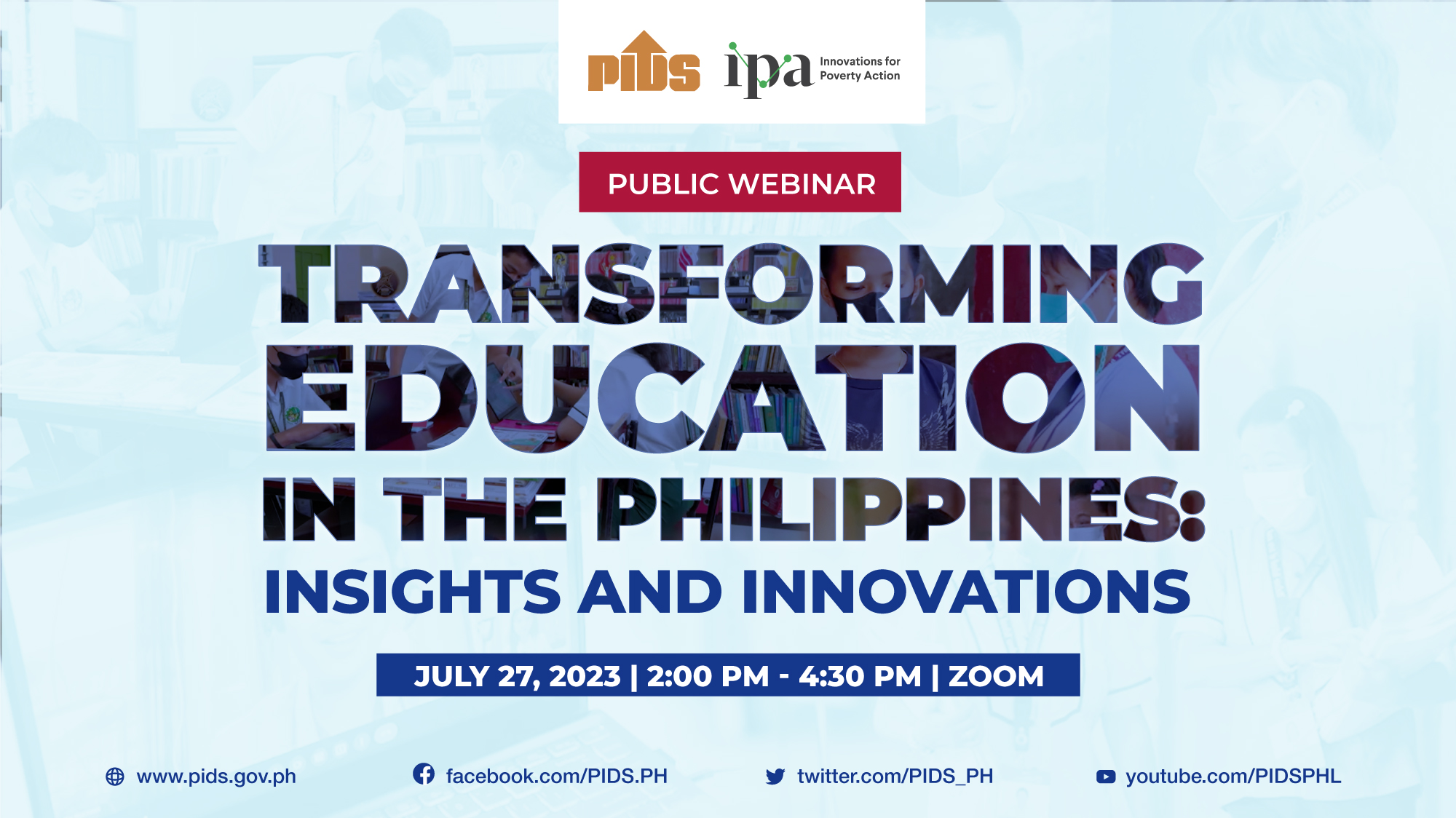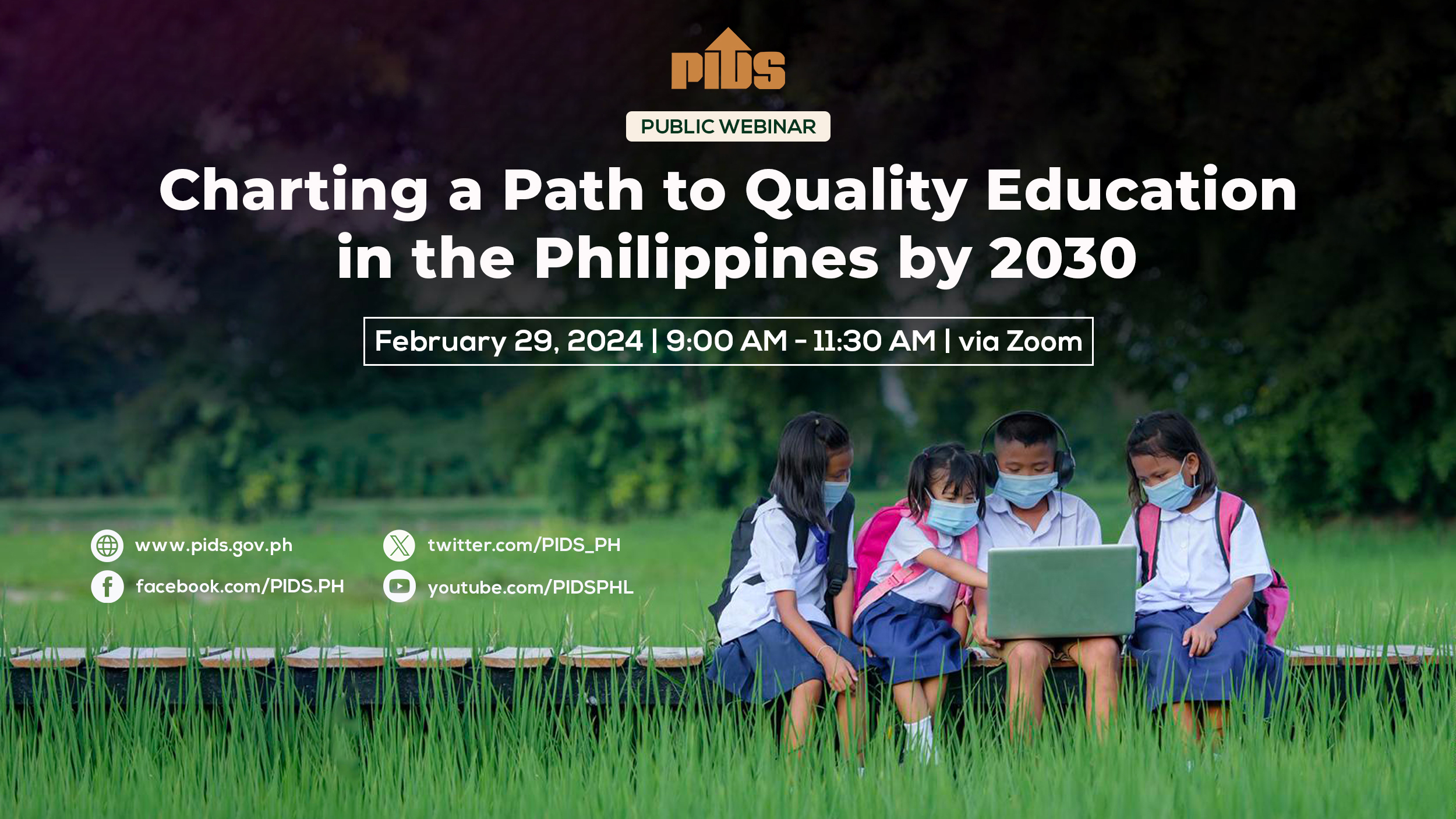THE Philippine Institute of Development Studies (PIDS) recently issued what should be taken as a dire warning about the state of public primary education in the Philippines, one that essentially points out that despite a general public impression that things are improving, the public education system is deteriorating at an alarming rate.
In a policy note titled “Pressures on Public School Teachers and Implications on Quality” and released about two weeks ago, PIDS identified a number of disturbing factors that are compromising educational quality in the public school system. The implication is that given the twin pressures of a growing school-age population and increasing job dissatisfaction among teachers, these factors must be addressed in a meaningful way soon to prevent the current education system from becoming completely ineffective.
There are four significant problems described by the PIDS study, which was based on interviews with school and DepEd division administrators and focus group discussions with public school teachers in various parts of the country. The biggest of these is the amount of administrative and other nonteaching work that is routinely expected of teachers. In addition to the six hours of daily classroom instruction required by law, teachers have other duties that include “…paperwork on seminars and trainings they are tasked to attend and additional designations in line with student guidance, budget, disaster response, and health. Teachers are likewise expected to participate in the implementation of various government programs, such as mass immunizations, community mapping, conditional cash transfer, deworming, feeding, population census, antidrug, election, among others.”
The PIDS study found that compensation, so often the focus of activist and lawmaker efforts to “improve” the lot of teachers, is not actually an issue. “Salary was not mentioned in the interviews with teachers and administrators as a problem. Larger salaries, after all, do not create more time in the day,” the report observed.
While the attenuation of teaching time for nonteaching work is considered the most significant problem in the public school system, the PIDS report was also highly critical of the current performance evaluation and incentive system, in which individual teachers’ performance is assessed on the basis of dropout and passing rates. The study acknowledged that there is not currently any other metric than can be correlated to individual teacher performance as easily as the dropout or passing rate, but recommended that finding more appropriate metrics be made a priority by DepEd. Under the current performance evaluation and incentive program, the report explained, teachers are discouraged from holding students back from advancing to the next grade level even if they are not ready to move on. The result of this is what the public perceives as “declining quality” in education — a growing number of students reaching the end of the mandatory education years without basic literacy or other skills.
Two other problems identified by the PIDS report are related to the larger topic of excessive non-teaching workloads, but on their own represent significant issues affecting the quality and efficient of public education. First, there is a critical lack of school guidance counselors. According to DepEd staffing guidelines, there should be one guidance counselor per 500 students, which means there is a need for at least 47,000 guidance counselors. Since 2008, when licensure exams for registered guidance counselors were first started, there have only been about 3,000 qualified counselors put to work.
There are two issues involved, as PIDS sees it. One is the requirement that applicants for guidance counselor have a master’s degree; only a bachelor’s degree is required for one to take the teaching licensure exam. The other is the low pay for guidance counselors, who start off at Salary Grade 11, or P20,179 per month. Raising the salary for guidance counselors would attract a greater number of qualified applicants, which is what the PIDS study recommended. Conversely, lowering the qualifications might also attract more applicants, although the obvious trade-off in talent makes this a suggestion PIDS probably would not make.
Finally, although the DepEd is energetic in mandating a variety of teacher training workshops and seminars during the school year, PIDS expressed doubts as to whether these are being properly rationalized and managed according to some organized plan. The message here is that while continuing education for teachers is important, it unavoidably has a time cost, and therefore must be of very high value and relevance to be justifiable.
The overall recommendation of the PIDS report is that the DepEd conduct some formal, evidence-based research to assess teacher workloads. By doing so, policymakers can determine the source of pressures and act accordingly to add needed nonteaching staff and remove some nonteaching duties from teachers. It is a recommendation that the DepEd should take seriously and follow, and soon, before the current crisis in public education becomes wholly unmanageable.












